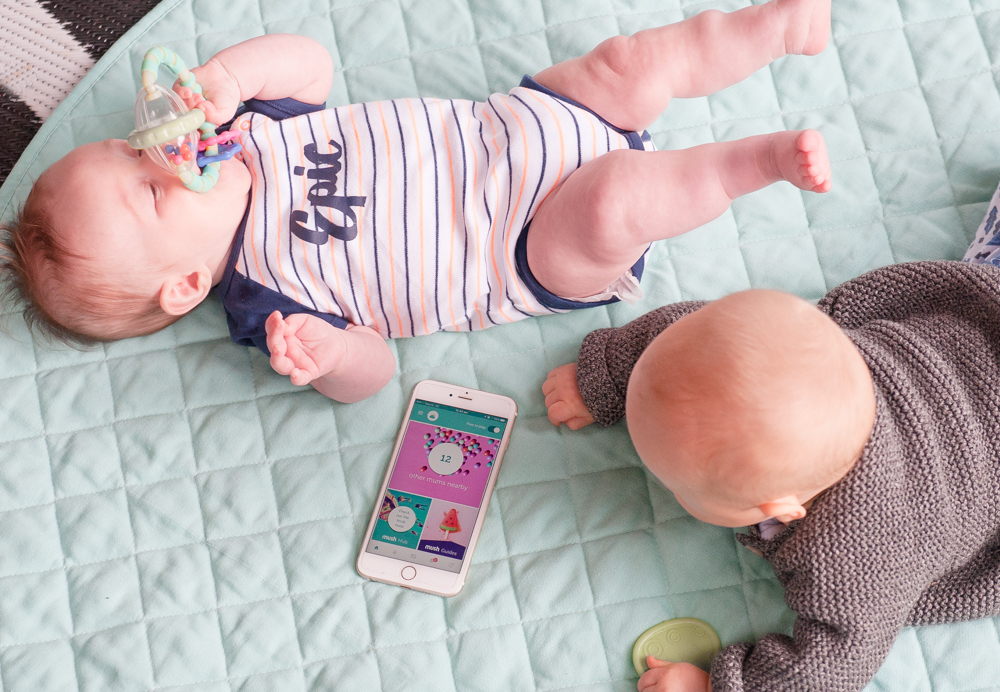The baby blues are a normal part of having a baby for many women. They usually arrive on day three after giving birth when the post labour endorphins take leave, leaving many women teary and emotional. They don’t usually last more than a few days or couple of weeks.
But what if you are still feeling low several weeks in? How do you know the difference between normal baby blues and post-natal depression?
Feeling low can be a natural part of motherhood. Sleep deprivation, settling hormones and the demands of a new baby are enough to make even the brightest star fade every now and then. But if those lows become commonplace and if you feel constantly overwhelmed with an underlying sense of doom, it is time to ask for help.
Post-natal Depression (PND) is different for everyone. A common symptom is the feeling that you just can’t cope, particularly with things that never confounded you before. The simplest of tasks can become impossible: getting dressed; getting in the car; getting out of bed.
Health anxiety, frequent tearfulness and panic attacks are all unpleasant symptoms. PND can also manifest itself very physically with headaches, fogginess, blurred vision and a general sense of feeling unwell, which often feeds the health anxiety, convincing a new mum that there is something very wrong.
If you are concerned that you, or someone you know, might have post-natal depression, here are four signs to consider:
Feeling exhausted, but unable to sleep
“Sleep while the baby sleeps” is advice given to many new mums, but it is not always so simple. However, struggling to sleep or vivid nightmares could be a symptom of PND.
Changing eating habits
It is hard to eat a well-balanced diet when you have just had a baby, when normal routine is in flux. But eating habits and mental health are hugely intertwined, with many people either comfort eating or, at the opposite end of the scale, experiencing loss of appetite when they are depressed or anxious.
Not engaging in conversation
It can be hard to engage in conversation when dealing with the demands of children or in large groups. However, not engaging in conversations or behaving in a withdrawn manner can all be signs someone is struggling.
Anxiety about your baby
It’s totally normal to worry about everything from your newborn’s body temperature to the colour of their nappy, but, in mums suffering from PND and/or anxiety, these concerns can be heightened, to the point that they become crippling. This can lead to them being scared to do things that wouldn’t normally bother them, such as taking their little one out to the shops.
If you are ever concerned about yourself, or another mum, check in with someone who knows you or them well. They will likely have noticed some changes in behaviour too.
PND can be treated very effectively with Cognitive Behavioural Therapy and, in some cases, medication too. The sooner it is diagnosed, the better. It is important to visit a doctor or health visitor as soon as possible. Ask to see someone who has experience in PND, who can guide the path to recovery.
Talking and getting support from friends and other mothers can be of huge benefit. After having children, loneliness can be a huge factor for many women, particularly if they live away from family or have few friends with children locally. A recent study in the UK found that 90% of mums felt lonely after having children.
However, the power of the internet means that it has never been easier to connect with other Mums. Indeed, Mush was founded out of the isolation I felt after having children and the difference friendship and support made. The more we talk openly and honestly about our mental health; the more chance we have of getting support.
Finally, if it does turn out you have PND, never feel ashamed or at fault. It was nothing you did. One in seven women suffer from PND. You will get better.


